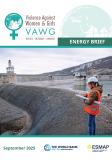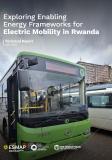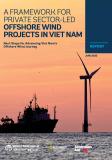Publications
This publication is intended as a primer on space cooling. It was developed in the context of the rapidly growing demand for space cooling and the critical need for access to affordable but sustainable space cooling solutions. This context includes solutions that can respond to the need for greater access to cooling, especially in large parts of the developing world facing increasingly high temperatures, while avoiding the considerable and disruptive impacts on energy systems and the accompanying greenhouse gas emissions that would result from business-as-usual growth.
The objectives of the Primer are to introduce a broad audience, including practitioners in different fields, to the broad topic of space cooling and its key considerations, and to help initiate and advance sustainable space cooling into policy discussions and investment considerations in developing countries. It aims to enhance the reader’s understanding of the applicability of different space cooling options and key factors enabling their implementation, along with potential trade-offs to consider.
The Primer brings together key findings from many relevant studies and publications, makes a convincing case for sustainable space cooling, provides an overview of available strategies and technologies to meet space cooling needs, and shares examples of effective regulatory, financial, and enabling mechanisms.
ESMAP. 2020. Primer for Space Cooling (English). Knowledge Series; no. 30-20 Washington, D.C.: World Bank Group. http://documents.worldbank.org/curated/en/131281601358070522/Primer-for-Space-Cooling



